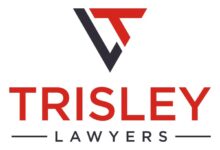Navigating Insurance Claims: The Expertise of Insurance Claims Lawyers
In the realm of insurance claims, the complexities of policy language and the intricacies of legal processes can often leave individuals feeling overwhelmed and uncertain. Enter insurance claims lawyers – legal professionals who specialize in guiding individuals through the complexities of insurance claims, ensuring their rights are protected, and maximizing their chances of a favorable outcome.
With their in-depth understanding of insurance law and unwavering commitment to client advocacy, insurance claims lawyers provide invaluable assistance in navigating the often-challenging landscape of insurance claims.
Legal Expertise and Experience
Navigating the complexities of insurance claims requires specialized knowledge and experience in insurance law. A lawyer well-versed in this field possesses the expertise to assess the merits of a claim, interpret intricate policy provisions, and build a compelling case for maximum compensation.
Insurance claims lawyers stay updated with the latest legal developments, ensuring they are familiar with recent court decisions, regulatory changes, and industry trends. This knowledge enables them to anticipate potential challenges and devise effective strategies to overcome them.
Impact of Specialized Knowledge
Specialized knowledge in insurance law significantly influences claim outcomes. An experienced lawyer can identify coverage issues that might otherwise be overlooked, maximizing the chances of a favorable settlement or verdict.
- Understanding Policy Language: Insurance policies are often filled with complex and ambiguous terms. A lawyer can decipher these provisions, ensuring clients receive the full benefits they are entitled to.
- Assessing Liability: Determining who is legally responsible for the damages is crucial in insurance claims. A lawyer can evaluate the facts and applicable laws to establish liability and pursue compensation accordingly.
- Negotiating Settlements: Insurance companies may attempt to offer lowball settlements. A lawyer skilled in negotiation can advocate for a fair and just settlement that reflects the true value of the claim.
Examples of Benefits
An insurance claims lawyer’s experience can benefit clients in numerous ways:
- Maximizing Compensation: A lawyer can help clients obtain the maximum compensation they deserve for their losses, including medical expenses, property damage, and lost wages.
- Protecting Rights: Insurance companies may try to deny or delay claims. A lawyer can protect clients’ rights and ensure they are treated fairly throughout the claims process.
- Navigating Complexities: Insurance claims can be intricate and time-consuming. A lawyer can guide clients through the process, handling all legal matters so they can focus on recovery.
Understanding Insurance Policies
Understanding the intricacies of insurance policies is paramount for successful claims. These documents often contain complex legal jargon and conditions that can be challenging for policyholders to navigate alone. An insurance claims lawyer plays a crucial role in deciphering the policy language, ensuring that all relevant provisions are identified and utilized to support the claim.
Interpreting Complex Policy Language
Insurance policies are replete with intricate legal terms and conditions that can be challenging for laypeople to comprehend. An insurance claims lawyer possesses the expertise to translate this complex language into understandable terms, ensuring that the policyholder fully grasps the coverage provided and the obligations imposed.
Identifying Policy Provisions that Support Claims
Insurance claims lawyers are adept at scrutinizing insurance policies to identify provisions that support the policyholder’s claim. They analyze the policy’s definitions, exclusions, and conditions to determine if the claim falls within the scope of coverage. This meticulous examination helps ensure that all relevant policy provisions are considered and utilized to maximize the chances of a successful claim.
Building a Strong Case

To increase the chances of a successful insurance claim, it’s crucial to build a strong case. This involves gathering evidence, documenting the incident, and obtaining witness testimony and expert opinions. A well-prepared case demonstrates the validity of the claim and increases the likelihood of a favorable outcome.
Steps involved in building a strong case:
1. File the Claim Promptly: Submit the insurance claim form as soon as possible after the incident occurs. Prompt reporting shows the insurer that the claim is being taken seriously.
2. Gather Evidence: Collect all relevant documents, receipts, and photographs related to the claim. This may include medical records, repair estimates, and police reports. Organize and maintain accurate records throughout the claim process.
3. Document the Incident: Create a detailed written account of the incident, including the date, time, location, and circumstances. Include any conversations with witnesses or relevant parties. This documentation serves as a valuable record for both the insurance company and any potential legal proceedings.
4. Obtain Witness Testimony: If there were witnesses to the incident, collect their contact information and obtain written statements. Witness testimony can provide valuable corroboration for the claim.
5. Consult with Experts: In complex cases, consider consulting with experts such as medical professionals, contractors, or appraisers. Their opinions can help support the claim and demonstrate the extent of the damages.
Tips for Gathering Evidence and Documentation
Gathering evidence and documentation is crucial for supporting an insurance claim. Here are some tips:
- Be Thorough: Collect all relevant documents, receipts, and photographs related to the claim. This includes medical records, repair estimates, police reports, and any other documentation that supports the claim.
- Organize and Maintain Records: Keep accurate records of all expenses and losses incurred as a result of the incident. Maintain a file or folder where you can store all relevant documents.
- Take Photographs: If possible, take photographs of the damage or injuries sustained. Photographs provide visual evidence that can help support the claim.
- Obtain Written Statements: If there were witnesses to the incident, obtain written statements from them. Written statements provide a more formal record of their testimony and can be used to support the claim.
- Consult with Experts: In complex cases, consider consulting with experts such as medical professionals, contractors, or appraisers. Their opinions can help support the claim and demonstrate the extent of the damages.
Importance of Witness Testimony and Expert Opinions in Claim Cases
Witness testimony and expert opinions can play a crucial role in insurance claim cases:
- Witness Testimony: Witness testimony can provide valuable corroboration for the claim. Witnesses can provide firsthand accounts of the incident and support the claimant’s version of events.
- Expert Opinions: Expert opinions can help support the claim and demonstrate the extent of the damages. Experts can provide technical or specialized knowledge that may be beyond the understanding of the insurance company or jury.
Negotiation and Settlement
Negotiation and settlement play pivotal roles in resolving insurance claims amicably and efficiently. Insurance claims lawyers, with their expertise and experience, employ strategic approaches to negotiate favorable settlements for their clients.
One key strategy is building a strong case by thoroughly investigating the claim, gathering evidence, and presenting a compelling narrative that supports the client’s position. This includes documenting damages, obtaining expert opinions, and establishing liability.
Factors Influencing Settlement Outcomes
- Strength of the Claim: A well-prepared case with solid evidence and legal arguments increases the chances of a favorable settlement.
- Insurance Policy Language: Understanding the policy’s terms, conditions, and exclusions is crucial. Ambiguities or gaps in the policy can be leveraged during negotiations.
- Settlement History: Insurance companies have varying settlement practices and tendencies. Researching their past settlement records can provide insights into their negotiation style and willingness to compromise.
- Mediation: Mediation, involving a neutral third party, can facilitate communication, bridge gaps, and help parties reach mutually acceptable resolutions.
Litigation and Trial

When an insurance claim cannot be resolved through negotiations or mediation, it may proceed to litigation, which involves filing a lawsuit in court. This is typically the last resort when all other options have been exhausted.
Filing a Lawsuit
To initiate litigation, the policyholder or their attorney files a complaint with the court. The complaint Artikels the details of the claim, including the insurance policy, the damages sustained, and the amount of compensation sought. The insurance company then has a specific time frame to respond to the complaint and file an answer.
Preparing for Trial
Preparing for trial is a complex and time-consuming process that involves gathering evidence, interviewing witnesses, and conducting research. The policyholder’s attorney works to build a strong case by collecting relevant documents, such as the insurance policy, claim forms, and correspondence with the insurance company.
They also interview witnesses who can provide testimony supporting the claim.
Evidence Presentation and Witness Examination
During the trial, both parties present their evidence and arguments to the judge or jury. The policyholder’s attorney presents evidence to support the claim, while the insurance company’s attorney presents evidence to defend against it. Witnesses are called to testify and are subject to cross-examination by both parties.
The judge or jury then decides whether the insurance company is liable for the claim and, if so, the amount of compensation to be awarded.
Ethical Considerations
Insurance claims lawyers bear the ethical responsibility of upholding the highest standards of integrity, transparency, and honesty in their dealings with clients, insurance companies, and the legal system. They must prioritize the best interests of their clients while adhering to legal and ethical guidelines.
Transparency and Honesty
Transparency and honesty are fundamental principles guiding the conduct of insurance claims lawyers. They must provide clear and accurate information to clients about the legal process, potential outcomes, and available options. Misleading or withholding information can undermine the trust between lawyer and client and jeopardize the integrity of the legal system.
Similarly, insurance claims lawyers must deal with insurance companies in a transparent manner, avoiding any misrepresentation or omission of facts.
Ethical Dilemmas
Insurance claims lawyers often face ethical dilemmas that test their principles and judgment. These may arise when:
Conflicting Interests
A lawyer may encounter situations where the interests of different clients conflict. They must carefully manage these conflicts to avoid compromising the interests of either party.
Client Misconduct
Lawyers may encounter clients who engage in unethical or illegal activities. They must balance their duty to zealously represent their clients with their ethical obligations to uphold the law.
Settlement Offers
Insurance companies may offer settlements that are less than fair or adequate. Lawyers must carefully evaluate these offers and advise their clients accordingly, ensuring that the settlement is in the client’s best interests.
Frivolous Lawsuits
Lawyers must avoid filing frivolous or baseless lawsuits, which can waste resources and undermine the integrity of the legal system.
Fee Structure and Costs
Insurance claims lawyers typically charge fees based on various structures, including hourly rates, contingency fees, or a combination of both. Understanding these fee structures and associated costs is crucial for clients seeking legal assistance in insurance claims.
Hourly Rates
In an hourly fee arrangement, clients pay the lawyer a predetermined hourly rate for the time spent working on their case. This structure is commonly used when the complexity of the case is difficult to estimate upfront or when the lawyer’s time is billed in increments, such as in 15-minute or half-hour blocks.
Contingency Fees
Contingency fees are a type of fee structure in which the lawyer receives a percentage of the client’s recovery as payment for their services. This structure is often used in personal injury cases, where the outcome and amount of recovery can be uncertain.
Contingency fees typically range from 33% to 40% of the total recovery, but may vary depending on the jurisdiction and the complexity of the case.
Hybrid Fee Arrangements
Some insurance claims lawyers may offer a hybrid fee structure, which combines elements of both hourly rates and contingency fees. This arrangement allows clients to pay a lower hourly rate while also having the potential to recover a portion of their legal fees if they win their case.
Factors Influencing Legal Fees
Several factors can influence the legal fees charged by insurance claims lawyers, including:
- Complexity of the Case: The more complex the case, the more time and effort the lawyer will need to invest, resulting in higher legal fees.
- Amount of Work Involved: The amount of work involved in a case, such as the number of documents to review, witnesses to interview, and court appearances required, can also impact the legal fees.
- Lawyer’s Experience and Reputation: Lawyers with more experience and a strong reputation may charge higher fees due to their expertise and track record of success.
- Jurisdiction: Legal fees can vary depending on the jurisdiction in which the case is being handled, as different regions may have different fee schedules or regulations.
Importance of Clear Communication
Clear communication about fees and costs is essential between insurance claims lawyers and their clients. Lawyers should provide a detailed explanation of their fee structure, including the hourly rate, contingency fee percentage, or hybrid fee arrangement. They should also disclose any additional costs, such as court filing fees, expert witness fees, or travel expenses, that may be incurred during the case.
Closure
Whether it’s deciphering intricate policy provisions, meticulously building a strong case, or skillfully negotiating settlements, insurance claims lawyers are steadfast advocates for their clients. Their expertise and unwavering dedication empower individuals to navigate the complexities of insurance claims with confidence, ensuring that justice prevails.









